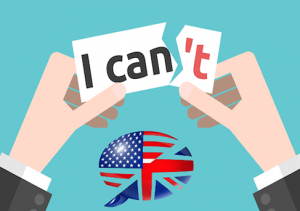Language/English/Grammar/Contractions
Contractions are shortened words or groups of words, and they are always informal. In most cases, they are formed by adding a contracted suffix, usually beginning with an apostrophe, to another word. Since contractions are not required in English, it is more important to be able to interpret them than to produce them. In fact, contractions should be avoided altogether in formal texts.
Here are the common contractions:
Upon acquiring a comprehensive understanding of this material, you might be intrigued by these relevant areas: Verbosity or Circumlocution, Irregular Verbs, Nouns & Definite Article.
-'d (had / would)[edit | edit source]
Followed by an infinitive verb (without to) (e.g. be, do, have, go, eat, open), -'d is short for would. Followed by the past participle (e.g. been, done, had, gone, eaten, opened), it is short for had. If the verb is irregular and the infinitive is the same as the past participle, you may have to use context to determine the best interpretation.
- I'd put it there - I would put it there / I had put it there
- He'd left it behind - He had left it behind
- She'd found the last key - She had found the last key
- I'd trust you if you smiled more - I would trust you if you smiled more
- You'd have been better off if you'd finished what you'd started - You would have been better off if you had finished what you had started
-'ll (will)[edit | edit source]
- He'll - He will
- I'll - I will
- It'll - It will
- She'll - She will
- They'll - They will
- We'll - We will
- You'll - You will
- What'll - What will
Examples[edit | edit source]
- Tomorrow I'll go to the store, because my refrigerator is almost empty!
- They'll start tomorrow - They will start tomorrow
-'m (am)[edit | edit source]
I'm - I am
Example[edit | edit source]
- I'm utterly exhausted, but I'm not giving up.
-'re (are)[edit | edit source]
- They're - They are
- We're - We are
- Where're - Where are
- What're - What are
- Why're - Why are
- How're - How are
-'s (has / is)[edit | edit source]
Don't confuse this with the possessive marker 's!
- Sam's a great friend - Sam is a great friend
- Sam's found something - Sam has found something
- Sam's dog is grey (That is, Sam has a dog, which is grey - this is the possessive marker and it is not considered a contraction!)
-'ve (have)[edit | edit source]
- Could've - Could have
- I've - I have
- Should've - Should have
- They've - They have
- Would've - Would have
- You've - You have
Example[edit | edit source]
- I could've gone to the gym, I should've gone to the gym, and I would've gone to the gym, but I didn't. Now I've gained weight!
-n't (not)[edit | edit source]
"Shall" and "will" change to "shan't" and "won't" when "-n't" is added.
As a general rule, -n't takes priority over other contractions. For example, "I have not" usually contracts to "I haven't" rather than "I've not". However, "It is not" can contract to either "It isn't" or "It's not", "We/you/they are not" can contract to either "We/you/they aren't" or "We're/you're/they're not", and "I am not" usually contracts to "I'm not".
- Ain't - Am not (This one is very, very informal. I would recommend avoiding it.)
- Can't - Cannot
- Couldn't - Could not
- Didn't - Did not
- Doesn't - Does not
- Hadn't - Had not
- Hasn't - Has not
- Haven't - Have not
- Isn't - Is not
- Oughtn't - Ought not
- Shan't - Shall not
- Shouldn't - Should not
- Wasn't - Was not
- Weren't - Were not
- Won't - Will not
- Won't ever - Will never
- Wouldn't - Would not
't- (it)[edit | edit source]
This contraction is archaic. You may find it in old stories or in poetry, but it no longer exists in everyday speech. If you like learning obscure features that you don't really need to bother knowing, this is for you.
- 'Tis - It is (Everyday equivalent: It's)
- 'Twas - It was (No everyday equivalent contraction; just use It was)
- 'Twill - It will (Everyday equivalent: It'll)
Examples[edit | edit source]
- 'Twas a cold winter's night, and all the stars did cry.
- 'Tisn't as far as he thinks. (Yes, -n't can be added to 'tis and 'twas.)
gonna (going to)[edit | edit source]
This contraction is very informal and generally used in speech rather than in writing.
- I'm gonna go home now.
- He gonna make it?
wanna (want to)[edit | edit source]
Like gonna, this contraction is extremely informal, and it may also be associated with petulant childishness.
- You wanna try?
- Don't wanna go to bed! Wanna watch the movie!
Finally, I'm sure there are more that I've missed, but these should help get you started on using Contractions in English!
Other Lessons[edit | edit source]
- Ask
- Nouns
- Adjectives ending in ly
- Meanings of YET
- At: place
- Miscellaneous collocations
- THE: use it or not
- Prepositions of Position
- Mass noun
- Countable and Uncountable Nouns

